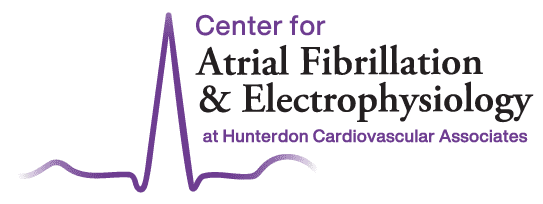
Each day, your heart performs an amazing feat. It keeps tempo, continuously supplying blood and nourishment to your vital organs with each beat. When your heart struggles to beat at a consistent pace or within a typical range, it is known as an arrhythmia.
What Is an Arrhythmia?
Your heart has specialized cells that originate electrical impulses, setting off a rapid chain of reactions throughout its electrical network. This electrical conduction cascade causes your heart to beat. A normal heart rhythm is between 60 and 100 beats per minute, with a predictable wave pattern. An arrhythmia deviates from this normal pace and pattern.
Types of Arrhythmias
There are many types of arrhythmias. Some are caused by a disease state, such as an external condition (like fever) affecting the heart rate. However, most arrhythmias are caused by a disruption within the electrical conduction system of the heart itself.
The most common arrhythmia is known as atrial fibrillation. This “irregularly irregular” rhythm can occur at a pace of 60 to 100 beats per minute or faster than 100 beats per minute.
Other types of arrhythmias include:
- Atrial flutter
- Bradycardia
- Tachycardia
- Brugada syndrome
- Long QT syndrome
- Wolff-Parkinson-White syndrome
Symptoms of Arrhythmia
When your heart is not beating at its normal pace or pattern, you may feel symptoms. These include:
- Dizziness
- Lightheadedness
- Presyncope (feeling like you may faint)
- Shortness of breath
- Feeling tired
- Racing heart or palpitations
- Nausea
- Chest pain
- Numbness
The more pronounced the arrhythmia is, the more strongly you may feel these symptoms.
Diagnosis of Arrhythmias
To diagnose an arrhythmia, a medical provider will first perform a physical exam, looking for physical signs such as atypical heart sounds or pulses. Then, a diagnostic test, such as an electrocardiogram or EKG, can give more information about the electrical conduction pattern of the heart. Sometimes, further diagnostic testing may be needed as well.
Treatment of Arrhythmias
Recognizing and treating arrhythmias is important because arrhythmias cause unwanted symptoms, and they can also predispose you to serious events, such as stroke. The treatment of an arrhythmia will depend on its underlying type and cause.
Many arrhythmias can be treated with pharmaceutical medications. Others may require a procedure known as an electrical cardioversion, a minor surgical procedure known as a cardiac ablation, or the implantation of a special device that helps control heart rhythms.
If you are diagnosed with an arrhythmia, your medical provider will review your options to find the best treatment plan for your individual condition.
How to Learn More About Arrhythmias
At the Center for Atrial Fibrillation and Electrophysiology at HCA, we provide state-of-the-art arrhythmia diagnosis and treatment with an emphasis on making important decisions with you rather than for you. To make an appointment with one of our cardiologists, please contact us today.
